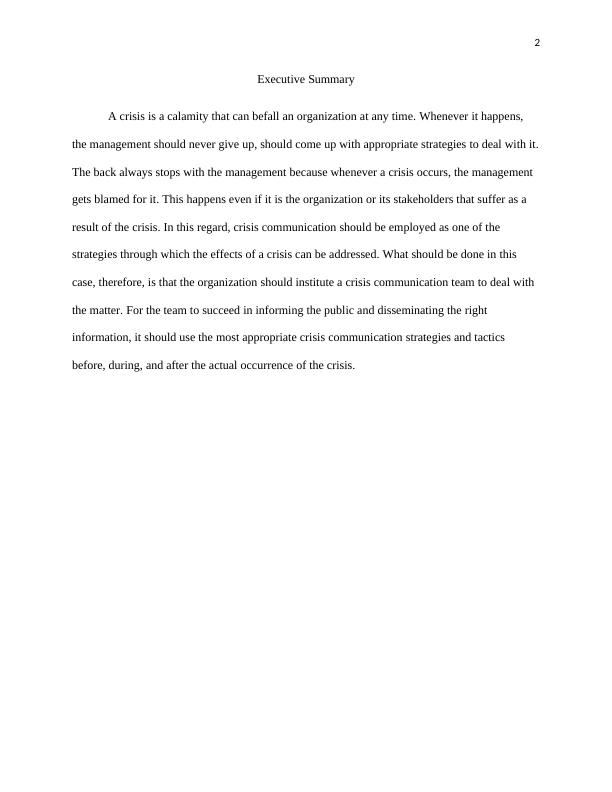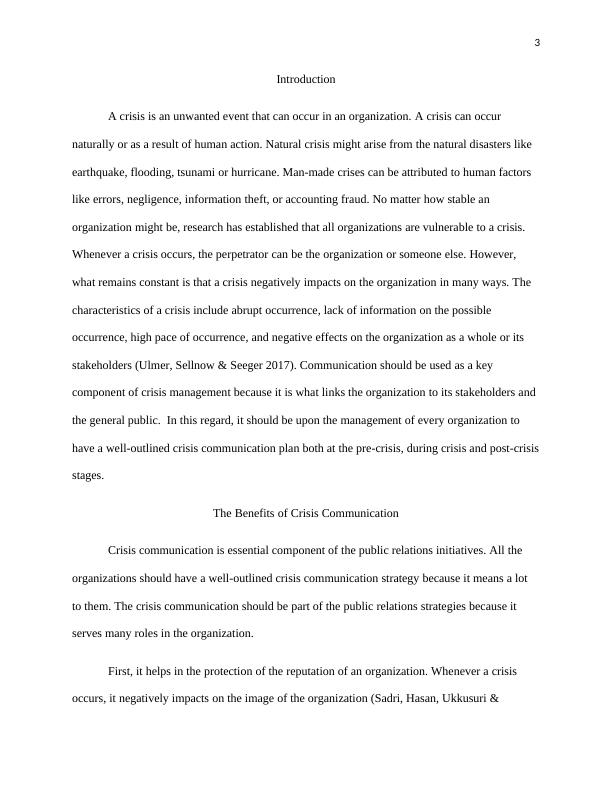Crisis Management: Strategies and Tactics for Effective Communication
Added on 2023-04-03
10 Pages2078 Words496 Views
End of preview
Want to access all the pages? Upload your documents or become a member.
Crisis Communication: Protecting Reputation and Maintaining Image
|13
|2172
|210
Reputation Management - PDF
|13
|3595
|71
(PDF) Risk culture and crisis communication
|6
|1181
|81
Crisis management and media communication plan of Starbucks PDF
|14
|3034
|74
A Study of the Reputation Management Strategies in Corporate Crisis
|27
|8426
|173
Managing People and Teams- PDF
|16
|667
|27



